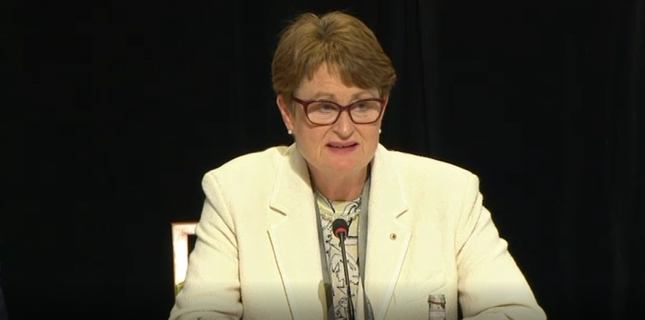
By Mikayla van Loon
As discussion got underway in Canberra on how to address the need for investment into childcare at the Jobs and Skills summit, two key priorities were raised time and again.
Parliamentary leaders, business men and women, unions and advocates came together over two days at the Jobs and Skills Summit, addressing the main contributors in this shortfall of skills and jobs.
Those being childcare reform and the necessity of universal skilling, reskilling and up-skilling.
University of Technology Sydney Chancellor Catherine Livingstone AO said in order to achieve better outcomes, distinctions need to be made between jobs, skills and competencies.
“Jobs come and go. The concept of a data hygienist wasn’t something that was necessarily on the table, even five years ago. Skills last a bit longer and they are the building blocks for jobs. Competencies should be enduring for life and they are the building blocks for skills,” she said.
Suggesting three levels of approach to the current workforce shortage, including the immediate being skilled migration and empowering female participation in work, Ms Livingstone said long term solutions come from education.
In the near future of two to 10 years, Ms Livingstone said an emphasis on upskilling, reskilling, microcredentials, fluid boundaries between school tertiary education and work and recognition of overseas qualifications are essential.
Looking past 10 years, Ms Livingstone said without a fraction of a doubt, investment in early childhood education is paramount.
“From the preschool year through kindergarten, one and two. This has huge benefits and with a focus on numeracy and literacy, you cannot do maths if you cannot read and comprehend.
“The benefits here are extraordinary for the individual…the confidence of young girls in developing digital skills is set at this age, if you don’t get it at this age, you don’t get it later.
“It’s at this age that patterns of behaviour are set. So if we’re talking about respect and respect at work, those patterns of behaviour are established at that age group. So the benefits of doing this are almost incalculable.”
Ms Livingstone said by putting money and effort into skills and competencies from a young age it returns in better productivity and engagement.
“It’s not governments that innovate. It’s not businesses, it’s not institutions, it’s people.
“We really need to invest in the skills of all our citizens, whether they’re in the workforce or not, so they’ve got the opportunity to build those skills and contribute to that value creation.”
Reflecting on the 20/20 Summit held in 2008, Ms Livingstone said Australia continues to ask the same question without suitable action on what will fix the labour market.
“[The report had] a very clear recommendation for early childhood education,” she said.
“Had purposeful action been taken at that time in 2008 we would now be seeing that first cohort of students entering the tertiary education system, better equipped with competencies and skills to take advantage of today’s opportunities.”
Leveraging Ms Livingstone’s comments, Business Council of Australia CEO Jennifer Westacott AO said ensuring high school leavers finish their schooling with “a set of recognised competencies” not just a mark is one change governments could make.
Ms Westacott highlighted the need to make vocational education and tertiary education interchangeable and more “interoperable”.
“It was fantastic to see the announcement yesterday of 180,000 extra places [and the] new skills agreement, but we need to move quickly to transform that money into transforming the system.
“And that transformation has to be about a tertiary system where we remove the cultural and funding biases that push people disproportionately into the university system or into a pathway that’s not right for them.”






